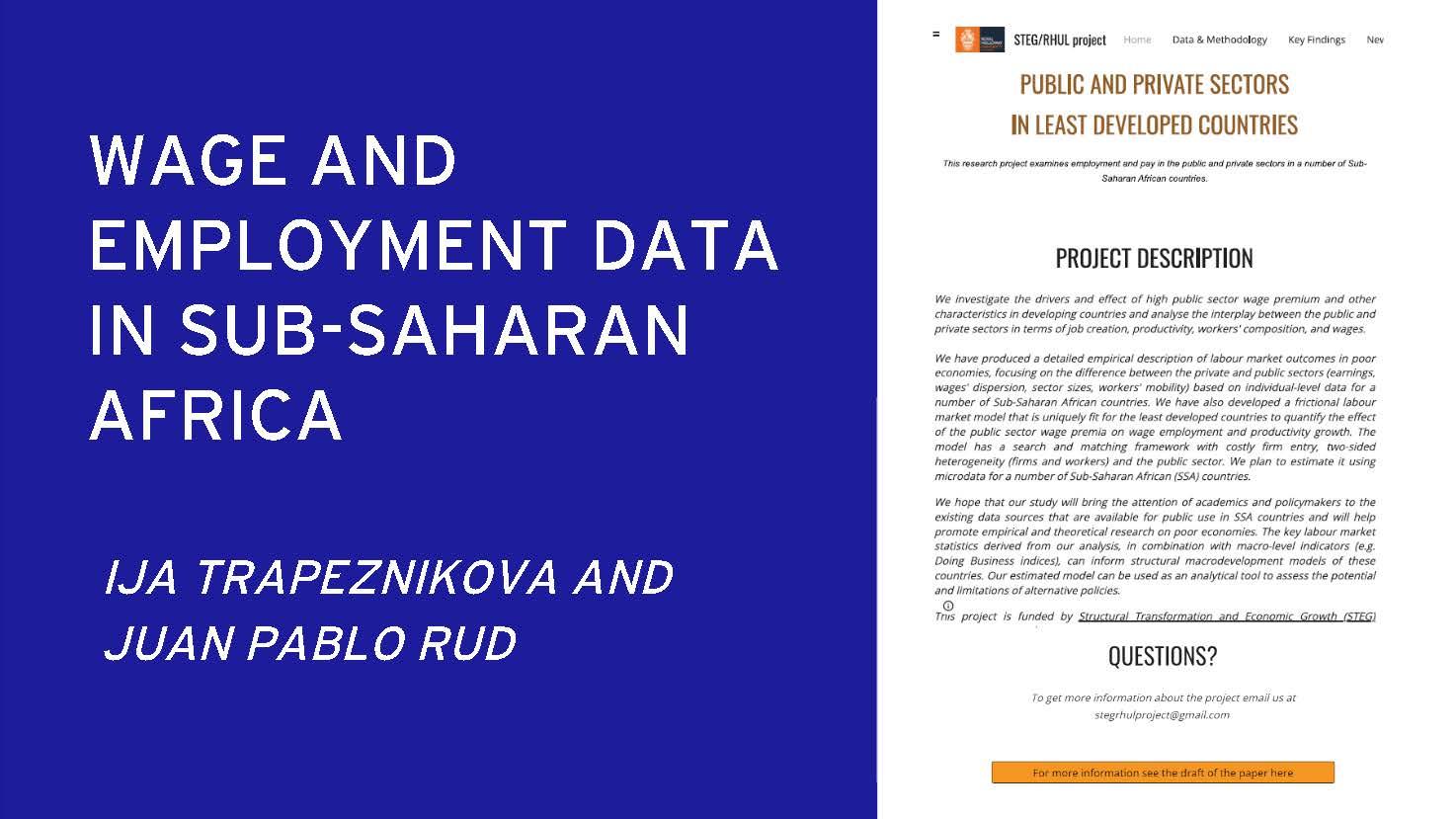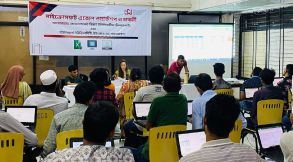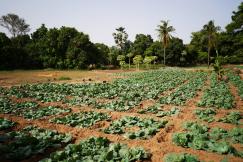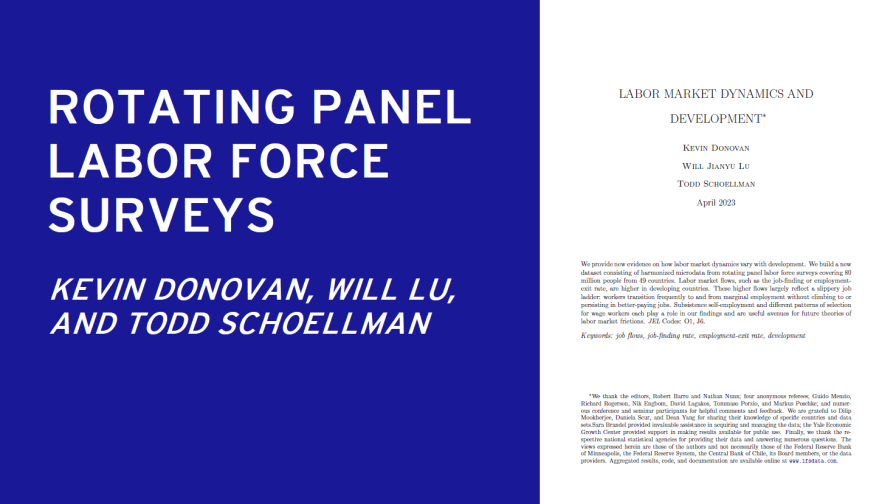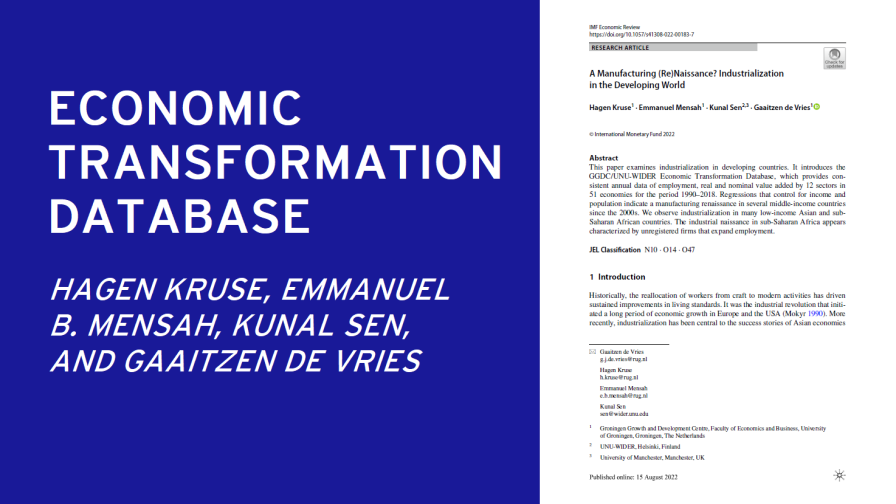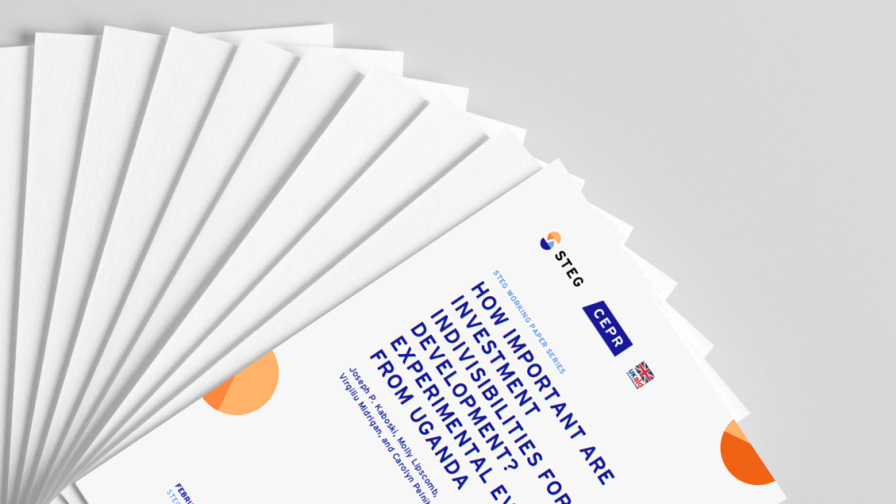This project website provides aggregated summary statistics on employment composition and wages by sector, gender, and education for a number of Sub-Saharan African countries. For a subset of countries that have panel data, average transition rates between sectors between survey waves are reported. The data is used in Rud and Trapeznikova (2023). The statistics published on the website are maintained by the two authors Ija Trapeznikova and Juan Pablo Rud. If you have any suggestions, comments, or questions about the data, or are aware of any data that is missing, please email the authors at [email protected].
Dataset description:
The data provided uses a large number of micro datasets from African countries, spanning the period of 2005 to 2020, to document empirical facts on labour market outcomes in poor economies. It is derived by harmonising the individual-level responses from the labour force or household surveys conducted by the central statistical offices of the corresponding countries. The authors focus on the individual’s employment status, employment sector, and monthly earnings in the main job.
They consider three separate employment sectors: (i) subsistence sector, which includes own-account workers and unpaid family members, (ii) private sector, which includes formal and informal firms, and (iii) public sector (such as national and local government) and state enterprises. Key patterns observed in the selection into the public sector on education; the differences in labour earnings between the private and public sectors; and workers' mobility between the three sectors for countries with panel data are reported.
The current database includes roughly half a million observations from 30 surveys and 16 Sub-Saharan African countries.
Micro data access:
Unfortunately the authors are unable to provide the underlying micro data due to agreements with various statistical agencies. Most datasets are part of the World Bank’s Living Standards Measurement Surveys (LSMS) programme and can be obtained here. A number of datasets have been obtained from their corresponding country's statistical office. Access links are provided on the Data Sources tab of the project website. The underlying codes to clean and harmonise the data can be obtained from the authors upon request.
